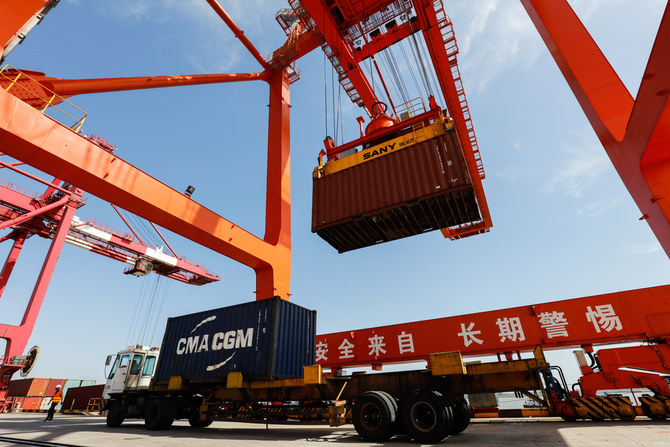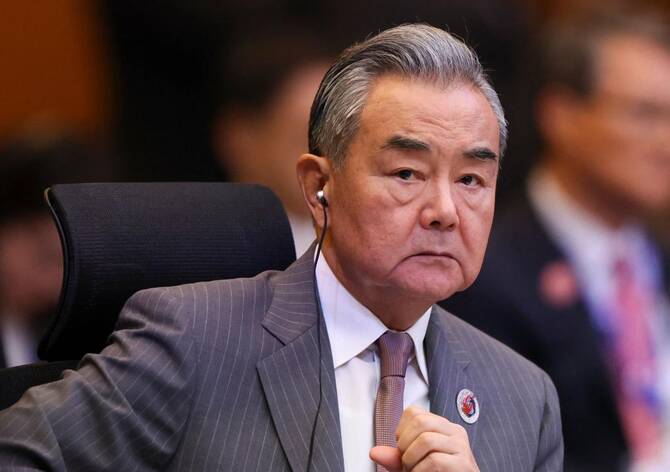BEIJING: A fall in China’s exports for the January-February period pointed to continued weakness in demand for the country’s products, backing government concerns that a global slowdown will be felt at home, accordin to Reuters.
Imports dropped, too, government data showed on Tuesday, also partly reflecting weak foreign demand, since the country brings in parts and materials from abroad for many of its exports.
Exports in the two months were 6.8 percent lower than a year before, after a 9.9 percent annual fall seen in December. The result was, however, better than the average expectation in a Reuters poll for a fall of 9.4 percent.
Imports were down by 10.2 percent, greatly missing the poll estimate for a 5.5 percent drop. December imports had been 7.5 percent lower than a year earlier.
“Given the high inflation in the US and Europe, demand from there should keep weakening, which also dampens the processing demand in China,” said Iris Pang, chief economist for Greater China at ING.
Commerce Minister Wang Wentao on Thursday cautioned that downward pressure on China’s imports and exports would increase significantly this year, because of the risk of a global recession and weakening external demand.
China has set a target for gross domestic product (GDP)growth this year of around 5 percent, after the economy, the world’s second largest, grew in 2022 at one of its slowest rates in decades. Last year’s GDP was up only 3 percent on 2021.
The customs agency publishes combined January and February trade data to smooth out distortions caused by the shifting timing of the Lunar New Year, which this year fell in January.
Economists expect imports to gradually recover as consumer confidence returns following the removal of COVID-19 restrictions in December, but they say the slowdown abroad could also hold down the volume of goods coming into China.
China’s January-February imports of crude oil were down 1.3 percent on the same period last year, while imports of natural gas fell by 9.4 percent. However, coal and soybean imports jumped on improving domestic demand.
In February, manufacturing activity expanded at its fastest pace in more than a decade, data from the National Bureau of Statistics showed last week, giving economists cause for optimism.
Factory activity readings from other Asian economies for February were more downbeat, however, reinforcing views that conditions abroad were more sluggish.
Reuters






















